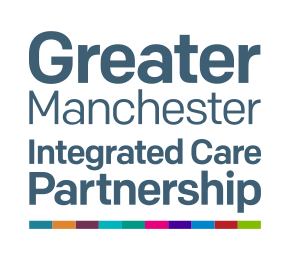
Michelle Featherstone
Chair Education Transformation Alliance
Workforce Education & Transformation Lead - Greater Manchester Integrated Care Partnership
In 2020 my father was diagnosed with stage 4 prostate cancer, and for 12 months he managed to cope with hospital appointments, and lots of health-care visits to deliver and administer his treatment. However, Covid restrictions hit the family hard and prevented us from building the special memories that a wife and two daughters had planned. It was a very difficult and emotional time for everyone. Dad had good days and bad days always trying to put on a brave face, which was tough to see, especially as he tried his best with chemotherapy which drained him after every session; however, we were thankful as this gave us extra time with our Dad and we managed to celebrate his birthday, Father’s Day and my birthday knowing it could be the last time. However, he loved his egg custards, and we ate a few of them too!
However, as Dad’s illness progressed, he became very weak and needed to spend some time in a local hospice during his final months. Dad always thought that if you go into a hospice, it was actually the place you would die, but the hospice team explained they would look after him and concentrate on the living rather than the dying. So, Dad agreed to spend a couple of weeks with them. The hospice staff were amazing, my dad’s spirits had been lifted and he was laughing again with the staff and patients. It felt like he was back to his old self (almost). The two weeks Dad spent in the hospice really helped to recover some of my dad’s confidence and in his own words “He hadn’t been written off just yet because he was dying.” I even managed to bring him in his favourite chicken fried rice!
Following his return home, my dad’s condition rapidly took a turn for the worst and his pain began to increase., This really was a roller coaster ride of emotions for the whole family when you just didn’t know what to expect from one minute to the next. My Mum cared amazingly for my dad, but we really knew he needed increased support from social care.
My Mum was introduced to a team of care workers who visited the house 3 times a day providing my dad with all the care he needed such as washing, shaving, dressing, whilst also recognising that my Mum also needed a person to talk to. I remember the staff would come to the house and talk to my dad saying, “Hello Dave, nice to see you.” I could sense that he was listening as there were moments when he smiled. As the illness further progressed it became more difficult emotionally for the family who were trying to come to terms with the outcome that here was a man, a Husband and a dad who didn’t have very long to live. While this remains very raw, it’s also important for me to share my appreciation to the staff who cared for my dad and those individuals who showed great compassion, dignity, patience, and kindness to a family whose ultimate wish was to look after their dad at home in his final days. I therefore dedicate this guide to all the social care and healthcare workforce who provide often unseen yet excellent care to our patients and families.

